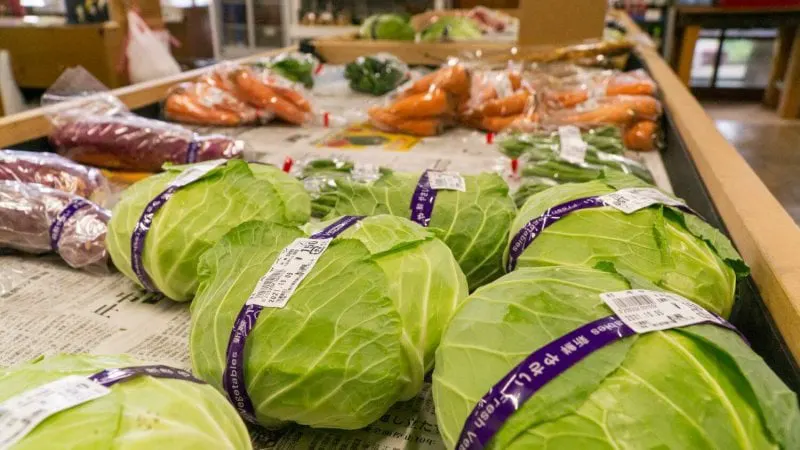‘Safer than natural’: Japan’s leading food risk expert says genetically modified and gene edited crops are safer than ‘wild varieties’ and offer ‘improved taste and yield’
‘Safer than natural’: Japan’s leading food risk expert says genetically modified and gene edited crops are safer than ‘wild varieties’ and offer ‘improved taste and yield’


When comparing artificially modified crops such as GM/genome editing with natural crops, “natural” seems safe at first glance, but it is rather the opposite for food safety experts.
Artificially cultivated crops, whether GM or genome editing, are safer than natural wild varieties, with significantly improved taste and yield, so artificial crops are safer than natural crops.
Not only is it excellent in terms of food, but there is no doubt that it has greatly contributed to the food culture of humankind.
In addition, it is an undeniable fact that ordinary agricultural products that you think are natural are actually only those whose genes have been artificially modified by conventional breeding.
Fake news such as “I don’t know what will happen when I eat GM. I’m worried about carcinogenicity and genotoxicity” is widespread on the Internet and public lectures, all of which are unscientific misinformation.
Unfortunately, those disseminating such suspicious information are developing visual marketing to emphasize the dangers of competing products in order to emphasize the safety of the non-GMO foods they sell.
[Editor’s note: This article was originally published in Japanese and has been translated and edited for clarity.]
This is an excerpt. Read the original post here.

 | Videos | More... |

Video: Nuclear energy will destroy us? Global warming is an existential threat? Chemicals are massacring bees? Donate to the Green Industrial Complex!
 | Bees & Pollinators | More... |

GLP podcast: Science journalism is a mess. Here’s how to fix it

Mosquito massacre: Can we safely tackle malaria with a CRISPR gene drive?

Are we facing an ‘Insect Apocalypse’ caused by ‘intensive, industrial’ farming and agricultural chemicals? The media say yes; Science says ‘no’
 | Infographics | More... |

Infographic: Global regulatory and health research agencies on whether glyphosate causes cancer
 | GMO FAQs | More... |

Why is there controversy over GMO foods but not GMO drugs?

How are GMOs labeled around the world?

How does genetic engineering differ from conventional breeding?
 | GLP Profiles | More... |

Alex Jones: Right-wing conspiracy theorist stokes fear of GMOs, pesticides to sell ‘health supplements’




 Viewpoint — Fact checking MAHA mythmakers: How wellness influencers and RFK, Jr. undermine American science and health
Viewpoint — Fact checking MAHA mythmakers: How wellness influencers and RFK, Jr. undermine American science and health Viewpoint: Video — Big Solar is gobbling up productive agricultural land and hurting farmers yet providing little energy or sustainabilty gains
Viewpoint: Video — Big Solar is gobbling up productive agricultural land and hurting farmers yet providing little energy or sustainabilty gains Trust issues: What happens when therapists use ChatGPT?
Trust issues: What happens when therapists use ChatGPT? Fighting deforestation with CO2: Biotechnology breakthrough creates sustainable palm oil alternative for cosmetics
Fighting deforestation with CO2: Biotechnology breakthrough creates sustainable palm oil alternative for cosmetics California, Washington, Oregon forge immunization alliance to safeguard vaccine access against federal undermining
California, Washington, Oregon forge immunization alliance to safeguard vaccine access against federal undermining 30-year-old tomato line shows genetic resistance to devastating virus
30-year-old tomato line shows genetic resistance to devastating virus The free-range chicken dilemma: Better for birds, but with substantial costs
The free-range chicken dilemma: Better for birds, but with substantial costs ‘You have to treat the brain first’: Rethinking chronic pain with Sanjay Gupta
‘You have to treat the brain first’: Rethinking chronic pain with Sanjay Gupta
